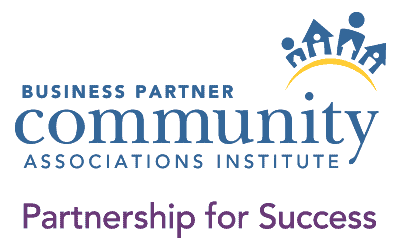New Florida Condo Website Law Postponed – Are You Ready?
Last year, Governor Rick Scott signed into law the Florida Condo Law Board Members Transparency Act to improve transparency in condominium associations. Chapter 718, requires that all condominiums managing over 150 units must have a fully functional password-protected website by July 1, 2018. Recent changes to this statute under House Bill 841 extend the deadline to January 1, 2019. Also, according to the revisions, some requirements have been relaxed. Earlier, multi-condos managing a cumulative amount of units that exceed 150 were required to have websites. Now, only individual condominiums managing more than 150 units are required to have a website.
The great news is that this gives more time for your associations and management team to comply, so you aren’t as pressed for time as you may have been before. You can relax a bit and take a deep breath! With that being said, we recommend staying ahead of the game and preparing early. In this article, you’ll learn the key takeaways of the Florida Condo Website Law and how to prepare for it.
What are the statute requirements?
The Florida Condo Website Law requires that associations publish a variety of financial and operations-specific documents:
- The Declaration of the Condominium and all changes that are made to it.
- Association bylaws, articles of incorporation, and all version changes.
- The association’s rules.
- A separate page titled “Notices” made publicly available that includes any notices ahead of the board meeting. This needs to be located on the homepage of the website or a separate page hyperlinked to the homepage.
- All contracts and open bids that the association is a party of.
- Completed annual budgets and any prior drafts that were considered.
- Comprehensive financial statements.
- Certificates for each board member.
- Board meeting documents such as agendas, meeting notices, as well as any issues to be voted on in advance.
- Other condominium-specific documents.
What should you consider in the technology space?
Choosing the right technology involves investing time to research options, implement the solution, and train staff. When using technology that meets your organizational needs, you’re better positioned to smoothen operations and cultivate a happier, informed community. Here’s a list of what to consider in your assessment:
- Ease of use – The website or web portal should be easy to navigate through and manage.
- Online storage capabilities – Find out if the software is based on the cloud or is a desktop app. The benefits of cloud-based software are many. Information can be accessed from any device and any location with an internet connection.
- Communication capabilities – Identify how the owners will be notified of new documents. Are there flexible communication preferences, such as the ability to send phone calls, emails, and text messages?
- Document management functionalities – Does the web portal or website allow for easy categorization, uploads, and permission settings for documents?
- Ownership of website – Under the law, associations are required to keep the website in the event they change management companies. If the website provider does not allow this, they are not in compliance with the law.
- Security – Does the website or the web portal keep the association’s data safe? Are there any SSL and HTTPS security protocols in place? How does the company manage data loss prevention?
- Scalability – As associations and management companies grow (because they certainly will!), does the website or web portal have the capability to manage that growth and evolving requirements? Look into software that can simplify many cross-community actions and at the same time, can be tailored to each community’s needs.
What about HOAs?
Although the Florida Condo Law Board Members Transparency Act is only for condominium associations managing more than 150 associations in Florida, it’s likely that other states will pass similar laws. For the smaller condos, HOAs, and co-ops, there is a statute for you – Senate Bill 398 specifies that an individual in your community should be designated the responsibility of handling estoppel certificates. Furthermore, their contact information must be published on the website.
A website or portal can be beneficial even if you’re managing an HOA. A website can help your HOA improve communication with residents by providing instant access to the latest community information. Residents are now searching online for answers first before they contact the management company. This enables your staff to reduce workload by having to field fewer inbound calls from residents.
About Pilera
Pilera Software is a premier community and property management suite that has helped thousands of community managers, board members, and back-office personnel enhance communications, improve customer service, and manage compliance and operations. May we help your community achieve these success stories? Learn more about how Pilera can help to be in compliance with the new Florida laws. Contact us today for any questions about our software.



